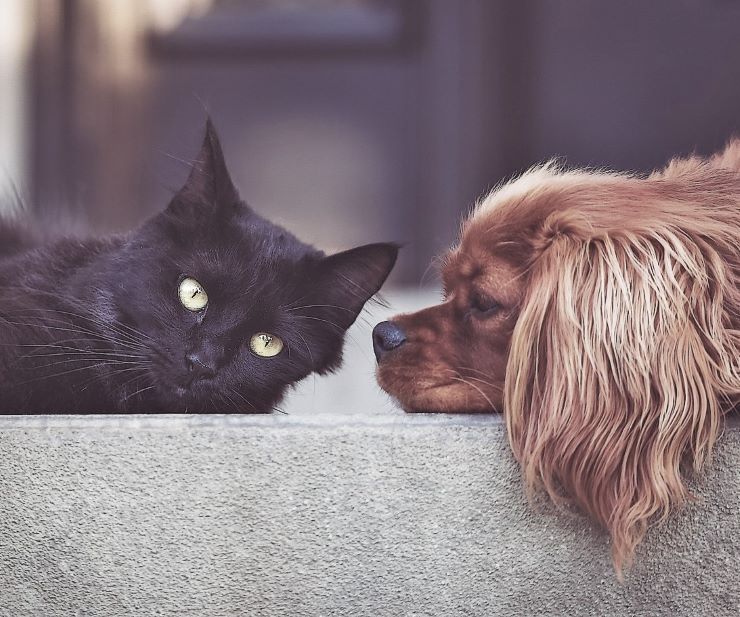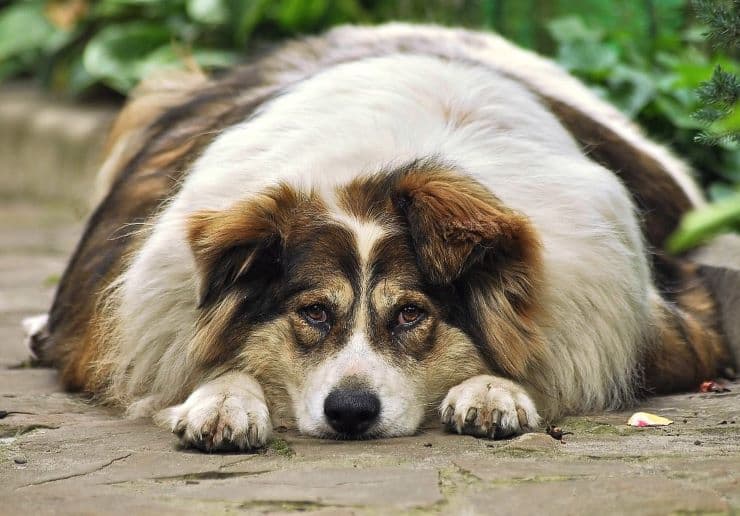Pet owners can take various preventive steps to help their dogs and cats avoid specific health problems. They should adopt a multifaceted strategy for preventative healthcare, which includes regularly having their pet evaluated by a veterinarian to assess their pet's general health and any potential risks for illness or other health issues.
Veterinarians offer advice on heartworm, flea, and tick prevention, diet, immunizations, and dental care for pets based on the results, as well as customized recommendations based on the patient and risk factors of the patient receiving preventive care to remain happy and healthy.
Pet owners can take the following broad preventative steps to steer clear of specific health issues.

Photo Credit: StockSnap/Pixabay
Obesity
Obesity or unneeded weight gain due to inactivity or overeating is a prevalent health problem among indoor pets. Because of space constraints, indoor dogs have less room than outdoor dogs to run, play, or participate in outdoor activities like chasing or hunting. This lessens the likelihood that your pet will burn calories and stay within a healthy weight range.
Limited activity might contribute to your pet's sedentary lifestyle, which is also due to a calmer atmosphere. This allows extra time for your dog or cat to lounge or sleep, adding to weight growth. In addition to limiting mobility, obesity can also result from overfeeding, particularly when giving out an excessive amount of snacks and treats.
If your pet is experiencing such, finding professionals and walk-ins such as veterinarian in Roswell, GA, should get you the best pet services today.
Periodontal Disease
Indoor pets, particularly older dogs and cats, frequently suffer from periodontal disease and poor oral health. You might be surprised to learn that periodontal disease can shorten your pet's life if left untreated.
The absence of natural chewing is one of the leading causes of indoor pets' susceptibility to periodontal disease. These animals don't have enough access to food that requires significant chewing, which can help remove tartar and plaque, because they are confined to their homes nearly exclusively.
You May Also Find Useful:
- Handling Zoonotic Diseases with Advanced Health Solutions
- Epilepsy in Dogs: How to Support Your Pet Through Seizures
- Exploring Therapy Options for Pets
Cancer
Cancer is another prevalent illness that can afflict both people and animals. Just like people, dogs and cats can also get a wide variety of malignancies. Because there are so many potential causes of cancer in dogs and cats, prevention is challenging.
While giving your pet a balanced diet of premium food is one of the most common-sense strategies to reduce your pet's risk of developing cancer, there are other, perhaps less obvious, ways to prevent cancer in dogs.
- The incidence of breast cancer in dogs and cats is significantly decreased by spaying them before their first heat cycle. Though the data is not as strong as it is for cats, this may also aid dogs.
- It's also crucial to lessen your exposure to pollutants at home and in the surroundings. Animal cancer has been linked to secondhand smoke from cigarettes, insecticides, and herbicides.
- Early detection is also essential for cancer to be treated swiftly or prevented from forming. Taking your pet for routine physical checks at the veterinarian is best.
Infectious Diseases
While they are reasonably frequent in dogs and cats, some infectious diseases can devastate their health. For instance, Feline Immunodeficiency Virus (FIV) is among the most prevalent contagious disorders cats can contract. The cat's immune system is attacked by FIV, making the animal more susceptible to other illnesses. Even though a cat with FIV may seem healthy initially, any bacteria, virus, or fungus can quickly make them ill.
The best action is to offer the cat a balanced and healthy diet and refrain from giving it any raw foods, as natural foods can readily become infected with bacteria. It's crucial to take your FIV-affected cat for routine exams.
Summing it Up
Every pet may require different care depending on their breed, age, and medical history. See your veterinarian in Roswell, GA, or elsewhere for individualized guidance based on your pet's particular needs.

Leave a Reply